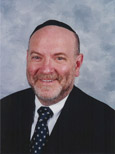WHAT WE DON�T BELIEVE IN AND WHAT WE DO
Some time ago, I found myself in an argument with a lady who was indignant over one of the morning blessings. It was the blessing that reads, “Praised are You, O Lord, Ruler of the universe, for having not made me a woman.” I thought I would diffuse her anger with the fact that the Conservative prayer book had not printed that blessing since 1946, but she persisted in her anti-Judaism rant. It became clear to me that the innovation of the Conservative prayer book could not erase the sting of Orthodox “authenticity.” As far as she was concerned, if you want to know what real Judaism is about, one must look to Orthodoxy.
She was, what I refer to as, a non-practicing Orthodox Jew. She was a Jew who was so disgusted with Judaism that she eschewed its practice while at the same time admitting to no other authentic form of Judaism other than Orthodoxy. She is part of a large community of such Jews. Many belong to Conservative synagogues.
A recent exchange with one of our good members pointed to this very issue. He took issue with a compassionate and loving God who had a penchant for severe punishments in response to seemingly minor infractions (e.g., death to anyone who would dare gather sticks on Shabbat, etc.) His complaint was heartfelt, but I wondered where he had heard, at least in this synagogue, that the Torah’s authorship was assigned to God and God alone. That’s an idea that one might find in an Orthodox community, but there are very few Conservative Jews who believe that the Torah was a book written by God and dropped from the Heavens into our hands. This does not render the Torah less sacred for us as a community. It means that in as much as human beings had a hand in the composition of the Torah, the Torah’s message may be clarified over time as humanity grows in its own sense of what is ultimately just and good.
In the midst of a month whose each passing day moves us closer to the celebration of a messiah’s birth, Jews need not be reminded that the messiah has not yet been born. But what may be of surprise is the fact that for many Conservative Jews, a messiah will never be born. The ancient world that gave currency to the idea of a messiah was one politically entangled in corrupt monarchies run by corrupt monarchs. It was only natural to hope and pray for the good king that would some day solve all the problems that a monarch never could and never did. Belief in a personal messiah is still in vogue within Orthodox circles. But for Conservative Jews, the idea of a messiah died with the birth of democracy. That is why we rarely speak of the messiah, but refer to a messianic time, the happy result of all people pooling their goodness and accessing the divine energy around them in order to effect a world that is just and at peace.
There is a danger in generalizations, but knowing who we are and who we are not can draw us closer together as a community. And so—
We do not thank God for having “not made me a woman,” but we do thank God for having made us just shy of being divine. Our gender is a gift of God, no matter how many x chromosomes we may have. We do not believe that God wrote every word in the Torah, but that in no way diminishes the sanctity of this great book. To the contrary, the knowledge that humanity and God have joined together in the creation of a narrative on ultimate good and ultimate justice should underscore the critical role that we play in bringing God’s goodness to life. And finally, we do not believe in a messiah that will correct all the problems of the world, but this does not free us of the responsibility to bring tikkun (repair) to a broken world. The faith we must have in our own ability to bring healing and repair to this world should fill our lives with direction and meaning. If the messiah is not a person outside of us, but the potential savior within us, then every morning we open our eyes to greet the new day is the birth of a messiah.
Is this Orthodox Judaism? Not at all. But it is authentic Judaism. It emanates from the Torah and the rabbinic teachings of old, and it is permeated with the democratic values and liberties that we have come to cherish. When we raise religious objections, let’s make sure we’re objecting to the tradition we adhere to and not to the tradition we don’t. We aren’t Orthodox—we’re Conservative.
Return to Cyber Rav ArchivesBack to Top


